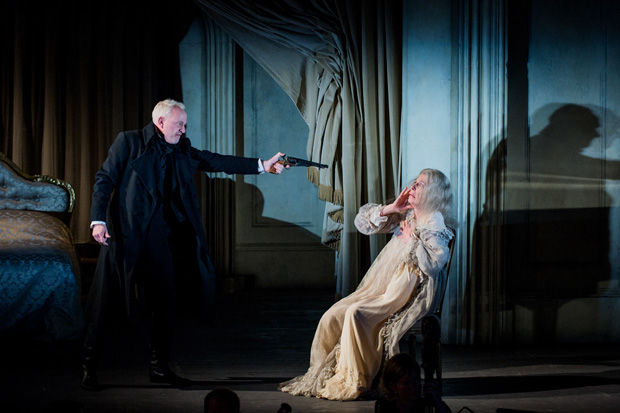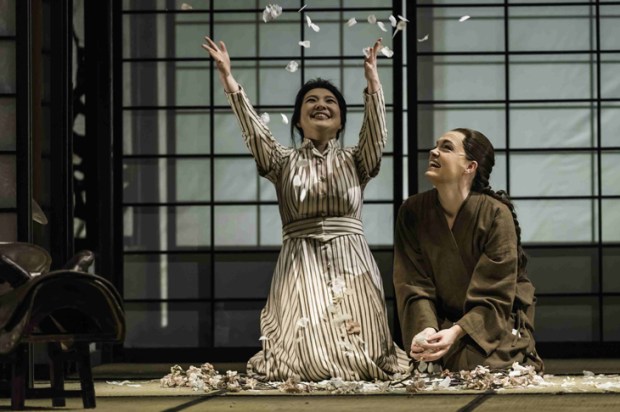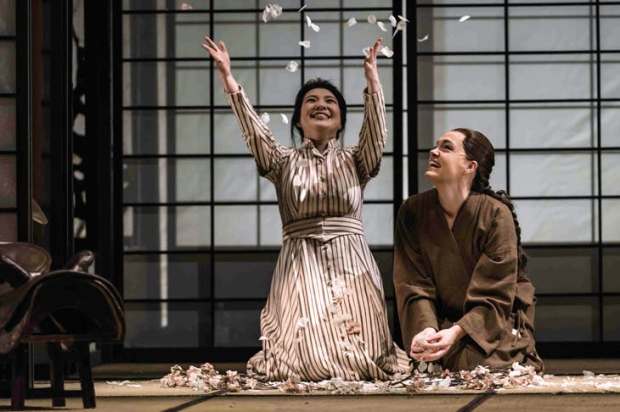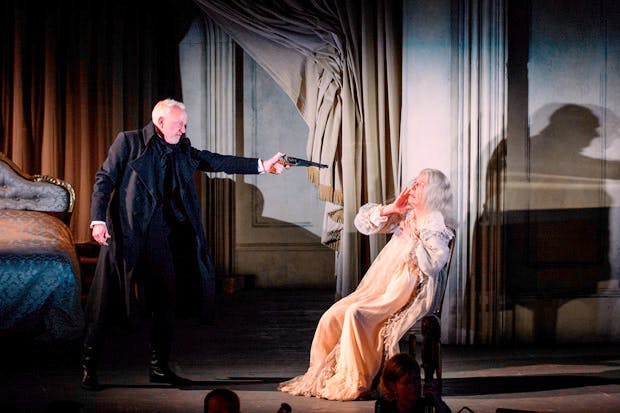Tchaikovsky’s The Queen of Spades is probably his greatest opera, certainly the one in which his characteristic strengths are on display. Pondering on them inevitably leads one to think about what the operas lack, too, and it turns out be quite a lot. Unlike the finest opera composers, of whom there are regrettably few, he can’t create complete characters: what he is interested in is characteristics, especially — or perhaps only — obsessions, even if the obsession, as with Eugene Onegin, is with not being obsessed with anything, until close to the end.
In The Queen of Spades the anti-hero Herman is doubly obsessed, though Tchaikovsky and his librettist brother Modest didn’t really pull this off, so we aren’t ever really sure whether he is in love with Liza, or whether his only interest throughout is in the cards which will secure his fortune. The music for the scene in which he comes on strongly to Liza and convinces her wouldn’t have convinced me, and it’s no surprise that it isn’t long before it no longer convinces Herman either — he spends the rest of the opera in single-minded and murderous pursuit of the old Countess. If by ‘love-duet’ one means a duet in which the participants succeed in expressing their love for one another, or feel it growing, then Tchaikovsky’s only successful one is in the tone poem Romeo and Juliet, since the feelings intensely rendered there are not specific to one or other of the lovers.
These urgent matters are not explored in the new production by Rodula Gaitanou at Opera Holland Park, but in its straightforward way it is very satisfying, presenting the story as simply as possible in an elegant and practical setting. These fairly cash-strapped companies are brilliant at creating an impression of glamour with very small means, while an oversubsidised Royal Opera spends a fortune in creating unconvincing squalor. The opening scene — even more strongly influenced by Carmen than Onegin is — is brought to life, and thanks to the spirited conducting of Peter Robinson it manages to create an atmosphere without seeming merely to mark time. After that nearly all the characters are dressed in black throughout, laying the gloom on too thick, but the wide stage is still handsome to look at.
From the start the grim figure of Herman is inescapable: Peter Wedd is one of those performers one looks at even when they aren’t singing. When Wedd does sing, he is as powerful as ever, and to the extent that the opera permits he gives the impression of being a three-dimensional character. So, at least as much, does Natalya Romaniw as Liza: she has already made a name for herself at OHP in two contrasting operas, and elsewhere. With a rich pure voice, she builds up the character without having a great deal to go on, and her suicide aria was almost unbearable. Tchaikovsky gives us a trio of climactic death scenes: the most exciting is the first, as the decrepit and senilely bad-tempered Countess sings that marvellous little aria and dies of terror when Herman approaches — Rosalind Plowright made a meal of that; then the canal scene with Liza; and finally Herman’s descent into utter insanity as he finds the Countess has tricked him. Wedd rose superbly to that last scene, since his histrionic gifts are the equal of his vocal ones. Even so, it’s the first of the scenes that wrings my withers, and the rest seems to be merely inevitable. But this is a thrilling production which maintained the astonishingly high standard that OHP now regularly operates on.
Shanghai Opera House has brought Thunderstorm, described by the Chinese ambassador as ‘this original creation, a western-style opera with rich oriental music elements’, with music by Mo Fan, setting a play by Cao Yu, who ‘has been somehow referred to as the Shakespeare of China’, according to the president of Shanghai Opera House. I wonder how. The plot is of the decline and fall of a prosperous modern Chinese family, with sexual and romantic intrigues involving both incest and relations with servants. The idiom of the music is almost entirely western, specifically Italian early 20th century, with occasional touches of chinoiserie, but orientalism intrudes less than in Madama Butterfly or Turandot. It is a mellifluous score, perpetually on the verge of becoming tuneful, and it was admirably acted and sung, with an excellent tenor Han Peng singing the errant son Ping, and Xu Xiaoying, a highly experienced artist, as Fanyi, Ping’s stepmother with whom he is having an affair. The whole performance was on a high level, but I’m unconvinced that the work deserved that level of commitment.
The post What’s love got to do with it? appeared first on The Spectator.
Got something to add? Join the discussion and comment below.
Get 10 issues for just $10
Subscribe to The Spectator Australia today for the next 10 magazine issues, plus full online access, for just $10.
You might disagree with half of it, but you’ll enjoy reading all of it. Try your first month for free, then just $2 a week for the remainder of your first year.











Comments
Don't miss out
Join the conversation with other Spectator Australia readers. Subscribe to leave a comment.
SUBSCRIBEAlready a subscriber? Log in